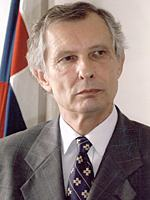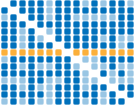The page of Ballek, Ladislav, English biography
Biography
(2. 4. 1941, Terany)Ladislav Ballek is a prose writer and a journalist. He graduated from high school in Šahy and studied Slovak language and literature in Banská Bystrica (1959-1963). From 1965 till 1966 Ballek taught at an elementary school in Habovka. Later he was employed by the Slovak radio and worked as a journalist for the regional newspaper Smer. In 1975 he moved to Bratislava. He worked there as an editor for the publishing house Slovenský spisovateľ from 1972 until 1977, when he was employed at the Ministry of Culture and became an official of the Slovak Fund for Literature (LF). At the beginning of the ´90´ he taught at the University of Nitra; from 1992 till 1994 he was a Member of Parliament for the post-communist Party of the Democratic Left. From 1994 till 1997 he taught at the Academy of Performing Arts in Bratislava. He was elected to the Parliament again in 1998. Since 2001 he has been the Ambassador of the Slovak Republic in Prague.
His debut, a novel entitled Útek na zelenú lúku, came out in 1967. Both this debut and the two following books – the novella Púť červená ako ľalia (1969) and the novel Biely vrabec (1970) - were described by the critics as slightly immature. The breakthrough came in 1974 with a collection of short stories published under the title Južná pošta. His following novels, Pomocník (1977) and Agáty (1986), are considered Ballek´s chef-d´oeuvres. They draw on the small town milieu of the Slovak South and develop motives outlined in Južná pošta. The novels Lesné divadlo (1987) and Čudný spáč zo Slovenského raja- (1990) are loose sequels to his last three books. His most recent novel, Trinásty mesiac (1995), is an attempt to portray the moral situation of Slovakia during the last thirty years, as well as a symbolic vision of social life and culture in the future.




